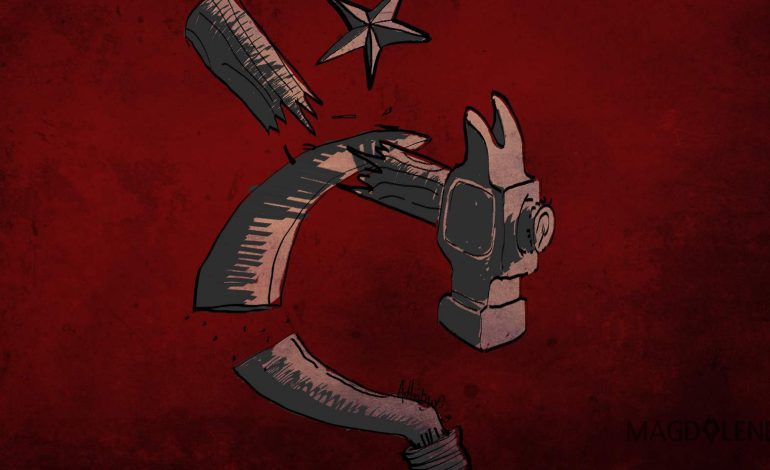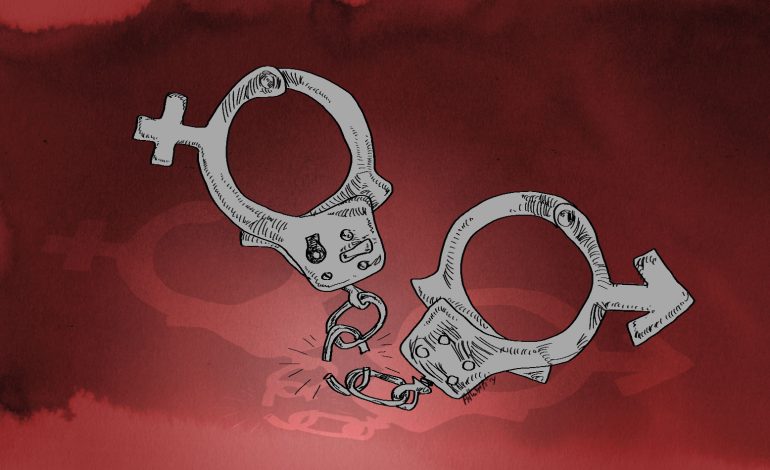5 Things About 1965 You Were Too Shy to Ask

It’s the end of September, that time of the year when your activist friends talk about 1965. You’re interested in the topic, but don’t know a lot about it. Fearing being labeled an ignorant “kelas menengah ngehe,” however, you curb your curiosity and stay silent at the dinner table.
Well, you’re probably not alone. To this day events surrounding the aborted coup known by its catchphrase G30S/PKI, which led to the rise of the late president Soeharto and his New Order Regime, continue to be shrouded in mystery, thanks to a mix of historical rewrites, fallacies and downright myths. But if you need some basic facts about one of the darkest periods in Indonesia’s history, below are some that can get you started on the path of knowing. At the very least, you won’t look ignorant at the dinner table.
1. What the heck happened in 1965?
Back at school, we were told that high-level army generals were abducted and brutally killed by PKI or Partai Komunis Indonesia (the Indonesian Communist Party) members. Full stop. Oh wait, we were also told about a bunch of sex-crazed women dancing around army generals whose genitals they had mutilated. What our history schoolbooks didn’t tell us is the consequent massacre across the country of 1 million people who were allegedly communist sympathizers.
As well-researched books and once confidential documents have since revealed, what happened in 1965 was part of an intricate web of power struggles, both in Indonesia and in the global arena. In brief: the US wanted to curb communism, then General Soeharto wanted to seize power from Soekarno, who at the time was in good terms with the hugely popular PKI. It’s a match of interests. Backed by the CIA, the Indonesian army led by Soeharto began to imprison, torture, and kill PKI members, their family, and everyone else who were seen as taking sides with communism. The tragedy stretched far beyond 1965. Ordinary people endured years of hardships because of the PKI and “tapol” (tahanan politik/political prisoner) labels.
2. Is it true that PKI people are atheists?
A friend of mine asked the exact same question to a Vietnamese friend: “OMG! You’re a communist? So you’re an atheist?”

Well, that’s beside the point. PKI was a political party just like the ones we see today. People of different levels of religious devotion had been active members or sympathizers of PKI and communist ideas. What does communism ask for? Common ownership is at the heart of communist ideology. When handled with care, there are bits and pieces of communism that can do good for societies that are increasingly focused on individual/private ownership. But of course, there is no perfect ideology.
And, hey, so what if a person is an atheist? Denying that God exists doesn’t mean denying that humanity, kindness and compassion – all of the things that God love – should prevail.
3. And who are the Gerwani, really?
If you were born in the 80s like me, you’ve probably come across the joke “You’re a mean woman, just like the Gerwanis!”
The New Order regime has successfully created a black propaganda against the Gerwanis, conjuring the image of lunatic immoral witches who killed our national heroes. Now come on, wouldn’t the army have a weapon or two to protect them from unarmed young women?
Gerwani (Gerakan Wanita Indonesia) was a women’s movement affiliated with socialist and communist ideas. It was a time in Indonesia when schools of thoughts flourished and it was cool then to be part of politically-conscious groups and to care for others. Among Gerwani’s many social-welfare oriented activities were setting up kindergartens, eradicating illiteracy among poor women and introducing international children’s day in Indonesia. Sadly, since that sad twist of fate in 1965, Gerwani women have withstood torture, rape and lifelong humiliations.
4. Was Act of Killing the first film to ever talk about 1965?
The Act of Killing has catapulted the issue to wider circles, but it’s certainly not the first to touch the subject. To name a few, Robert Lemelson’s 40 Years of Silence and Putu Oka Sukanta’s documentaries give a human face to the tragedy through the lives of ordinary people, Chris Hilton’s Shadow Play reveals the global powers involved in the making of the 1965 tragedy.
5. How can I learn more about the issue?
Read! Here’s a list of novels, comic and non-fiction books for further exploration:
Penghancuran Gerakan Perempuan by Saskia Wieringa
Dari Kamp ke Kamp by Mia Bustam
Kekerasan Budaya Pasca 1965 by Wijaya Herlambang
Dalih Pembunuhan Massal by John Roosa
Langit Pertama, Langit Kedua by Martin Aleida
Djinah 1965 by Evans Poton
Pulang by Leila Chudori
Amba by Laksmi Pamuntjak
Memoar Pulau Buru by Hersri Setiawan
Candik ala 1965 by Tinuk Yampolsky
Intan Febriani was born and bred in Jakarta. She’s a driven person but she just doesn’t drive. She believes in good living for a good cause.





















